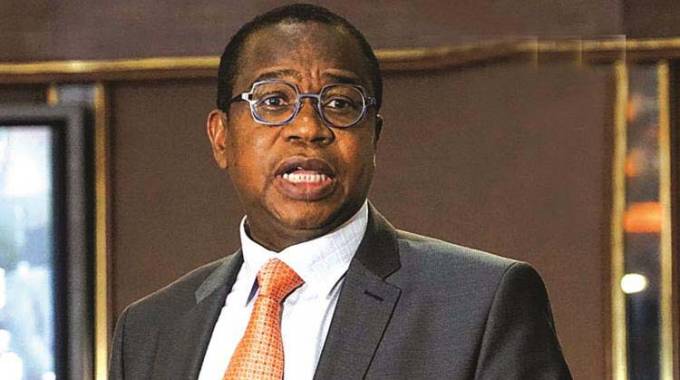
The Sunday Mail

Business Reporter
THERE is need to revisit the centralisation of ownership of parastatals and State-owned enterprises (SOEs) as the plan appears not to be gaining traction two years after the Government indicated it wanted to transfer control of State entities from line ministries.
In the 2020 and 2021 National Budgets, Finance and Economic Development Minister Professor Mthuli Ncube said Cabinet had resolved to move away from a system where the shareholder function of State-owned enterprises (SOEs) was spread across line ministries and establish a single entity that would have an overall oversight of the State companies.
The move was cheered by some analysts who viewed it as key towards reforming SOEs, particularly the utilities, whose poor performance continues undermining economic revival.
According to Prof Ncube, the current ownership model has faced a number of challenges including inconsistencies in governance practices, interference by ministers, delays and or reversals of Government-approved SOE reforms due to interest ties within some line ministries, and generally weak and passive oversight functions.
Under the centralised ownership model, a single Government institution would take on the role of shareholder in all State-controlled companies. He said the new ownership model would be one of the key reforms of the State-owned companies.
The current ownership model has been associated with the poor performance of the SOEs sector not just in Zimbabwe, but around the world.
As such, many countries in the region, such as South Africa, Mozambique, Namibia and Zambia; as well as those beyond, such as in China, Malaysia, France, have migrated from the decentralised ownership system in favour of centralised models.
“I think that was a smart move because we continue to have interference from the line ministries,” analyst Mr Carlos Tadya.
“We have seen situations where boards are changed whenever the new minister comes in or deals are already approved and cancelled. This creates a fertile ground for management inconsistencies.
“The broad reforms that the Government is talking about, and of course some believe should happen will be very difficult to achieve. I urge the Government to revisit the plan.”
Confederation of Zimbabwe Industries (CZI) president Mr Kurai Matsheza, however, argued that the ownership model of the State-owned enterprises had nothing to do with the poor performance of the SOEs or slow implementation of the reforms.
“If decisions are made, they should be implemented despite where they (SOEs) sit,” Mr Matshezi told The Sunday Mail Business in an interview this week.
“The drain (on the fiscus) will not depend on where they sit.”
He said the Government should invite private players capable of reviving and managing SOEs to buy stakes.
“For us (in the private sector), that is what we think is the most viable ownership model.”
Economist Professor Gift Mugano said one of the main advantages of centralised management of SOEs was that it would take away interference from line ministries and politicians.
“Naturally, the centralised model will take away the power of ministers because their power is determined on how many parastatals fall under them,” said Prof Mugano.
“But that will help smooth the operations of the SOEs and enhance effective management.”
“However, a one size fits all approach will not work as some SOEs require liaison with line ministries because of technicality and specialisation of their activities.
“Looking at the advantages and disadvantages of the two models, I think the current model remains viable, but we need to strengthen governance issues and promote good ethics.”
Three years after embarking on reforms of SOEs and parastatals to enhance their performance and reduce its reliance on the fiscus, the country has largely missed its targets.
The re-engineering of the parastatal sector, which used to contribute 40 percent to the gross domestic products (GDP), is also meant to enhance service delivery and improve accountability.
In almost every sector where they operate, SOEs face a number of challenges including lack of capital, low productivity and unsustainable debt.
Services have deteriorated substantially and even the welfare of their own employees is often in jeopardy. Most of these entities are technically insolvent, presenting an actual or potential drain on the fiscus.



